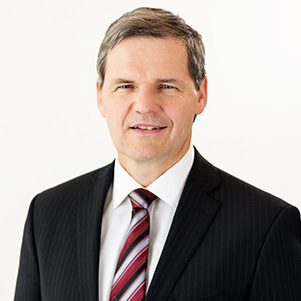
A recent decision by an ethics commission in New York is a bad idea built on a flawed concept. And it may foretell new regulatory challenges facing communications and government affairs professionals.
In late January, the New York State Joint Commission on Public Ethics (JCOPE) voted to require public relations consultants to register as lobbyists if they help a client craft and pitch a story to garner editorial support for a policy issue.
“Any attempt by a consultant to induce a third party — whether the public or the press — to deliver the client’s lobbying message to a public official would constitute lobbying under these rules,” states the advisory opinion, set to go into effect as early as April.
New York has faced more than its share of political scandals, including the recent corruption convictions of former Senate Majority Leader Dean Skelos and former Assembly Speaker Sheldon Silver. The same two politicians had teamed with Gov. Andrew Cuomo in 2011 to pass the Public Integrity Reform Act, which created JCOPE in the first place.
Many states require registration or reporting of grassroots advocacy, but New York is the only one to expand the definition to regulate conversations with the media. At the federal level, the government requires people to register as lobbyists only if their employers hit an expense threshold, they have at least two lobbying contacts and they spend at least 20 percent of their time involved in direct lobbying.
In its advisory opinion, JCOPE correctly observes that “advocacy has evolved” beyond one-on-one meetings between lobbyists and policymakers. Public affairs campaigns dealing with major issues often employ advertising, coalition-building, social media outreach and other strategies.
This trend will only accelerate in the future and that will surely invite scrutiny by regulators. But the more indirect these advocacy methods become, the harder it is to regulate them without infringing on free speech rights.
Ken Paulson, president of the First Amendment Center at the Newseum in Washington, D.C., told The Wall Street Journal’s Law Blog that the decision by JCOPE sounds “unwise, unworkable and arguably unconstitutional.” In the same post, Donna Lieberman, the executive director of the New York Civil Liberties Union said “requiring someone to report every conversation with an editorial writer is intimidating to both journalists and advocates.”
Mass confusion about a poorly written rule can also have a chilling effect on free speech. The proposal was amended to state it wouldn’t apply to consultant meetings with reporters, but what about meetings with columnists or editors? Does it regulate outreach to new media like BuzzFeed or The Huffington Post? Or opinion shows like “The O’Reilly Factor”? How would this affect a Facebook campaign designed to raise public awareness?
I imagine some journalists will avoid conversations with consultants when they think the subject matter will trigger a filing — even though the rule won’t require disclosure of the media outlet’s name. “The idea of requiring anyone to have to report to the government before they talk to the press is a very dangerous proposition,” New York Press Association Executive Director Michelle Rea told Crain’s New York Business.
Clearly, this new regulation is a bad idea from the outset. The “flawed concept” is the assumption that a person trying to influence public opinion is doing something nefarious. The First Amendment not only protects free speech; it protects the right “to petition the government for a redress of grievances.” In a democracy, competing views should be allowed to fight it out in the marketplace of ideas. This clash often results in good public policy. And when it doesn’t, sooner or later, laws and regulations are changed again.
Nevertheless, in a related ruling requiring consultants who facilitate advocacy to file as lobbyists, JCOPE revealed it is not a big fan of petitioning government. “These situations,” the commission wrote, “are all part and parcel of trading on relationships and influence.”
Fortunately, even Gov. Cuomo, who has pledged to stem corruption in Albany, is now having second thoughts about the new policy. Referring to the language related to communication with editorial boards, the governor’s spokesman told Newsday. “This raises some real questions and we’ll be reviewing it very closely.”
Lobbyists at both the state and national level can live with basic disclosure requirements. And a valid argument can be made that disclosure can serve the public interest. But enlarging the definition of lobbying to cover loosely connected activities or media outreach does nothing to improve the ethics or behavior of politicians.
It won’t even succeed in distracting people from New York’s political scandals.
 Doug Pinkham is president of the Public Affairs Council and a Trustee for the Institute for Public Relations. Follow the Public Affairs Council on Twitter @PACouncil.
Doug Pinkham is president of the Public Affairs Council and a Trustee for the Institute for Public Relations. Follow the Public Affairs Council on Twitter @PACouncil.




Thanks Doug for helping to clarify the JSCOPE situation as it stands in New York State. We all hope this attempt to quash free speech will die an eternal death. As for NYS corruption, that will likely never end. The deepest cesspools of political corruption in America are in our state capitals, not in Washington.